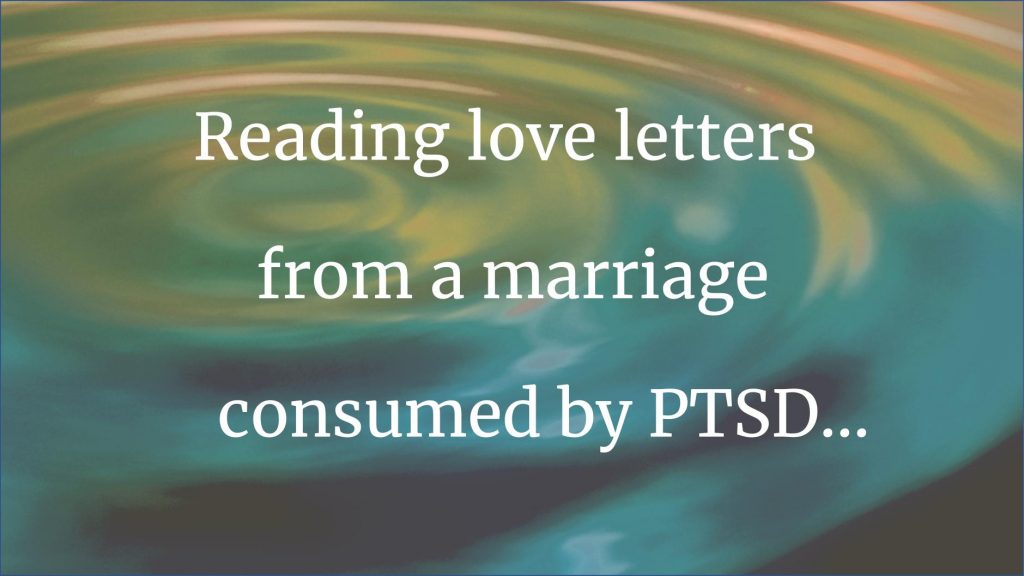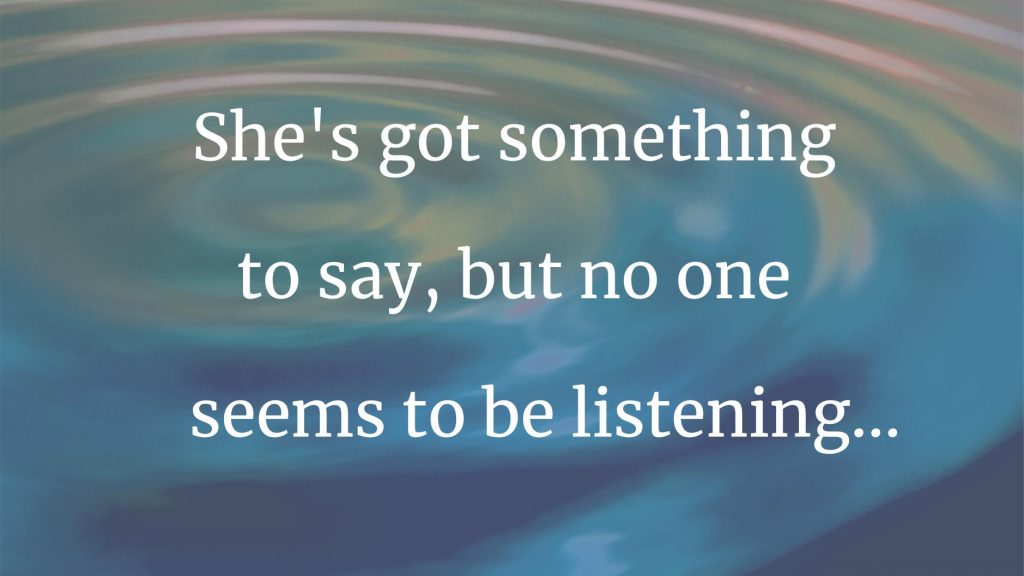Embracing Vulnerability
Her voice trembled as she fumbled with the scrap of paper in her hands. What did I do wrong? Is this the right prescription? Am I going to die? The questions gushed from her all at once.
As a medical student on my first clinical rotation, I was still getting used to how to run these clinic visits. It seemed like no one was ever there for the reason originally listed, and somehow I always ended up with the long-winded patients that kept me in the room so long I was lucky if I made it to the physical exam before my attending ran into the room to take over. Any plan I had made to make this visit any different was quickly derailed when I heard the words: deep vein thrombosis.
I was transported back five months prior when my mother received the same diagnosis. She had a long personal and family history with varicose veins, but the new, painful swelling in one of her legs was new. I recalled the darkness of the ultrasound room, the feeling of holding my breath each time the technician paused to ask my mother a question, the unbearable waiting
Embracing Vulnerability Read More »
Searching for Sparks
I’ve been thinking a lot about how the practice of medicine is not always the practice of wellness. How optimistically I applied to join this profession out of a sense that I intuitively took better care of myself than did many of my peers. I knew that happiness and health intertwined, though my naiveté about how to rescue one if the other faltered was sorely lacking.
Ahh, youth. Unencumbered by the kind of financial and emotional obligations I would eventually crave, back then I could restore balance with a day trip to wine country, or a chance to ski instead of study. I took up swing dancing during my surgery rotation in medical school, if only to prove to myself that my life was my own.
Years later I chose yoga, biking, traveling. Now, in the pandemic, yoga happens in my living room. I write about little moments. I hike. I daydream about the places I once went and hope to take my children someday.
But my pastimes are not my patients’ pastimes. Often, dropping one activity suggestion after another, like feeding quarters into a slot, I hear them fall into the coin return instantly, never registering. Too many teens are
Searching for Sparks Read More »
Found Down
I keep having this dream where I’m trying to call 911, and I can’t. I can’t seem to get the phone to work. I become panicked, and I can’t breathe. My heartbeat pounds in my ears, and I feel the sharp taste of bile in my throat.
When I wake up, that shaky feeling of fear and impotence clings to me. I don’t ever remember what was wrong in the dream–why I needed to call 911. I just remember not being able to.
Mutual Wounding, Mutual Healing
One of the hardest parts of being a physician is dealing with the death of a patient. In the course of my career, I’ve learned that the physician-patient relationship can be an effective tool for healing, for the doctor as well as the patient’s family.
An example follows: My patient with advanced COPD died in association with emergency surgery. Despite appropriate care, his condition overwhelmed him. His wife, also my patient, was an assertive, take-charge individual. In addition to blaming herself, she angrily insisted that some error in care led to her husband’s death.
I realized that we had to allow time with active listening to help the widow to heal. I decided to increase her visits, at first using the cover of following her blood pressure and atrial fibrillation more closely.
It was not pleasant, and it required restraint. One day, after listening to the litany for over eighteen months, I became frustrated, and said: “Mrs. Smith, let me help you find a good malpractice lawyer! Otherwise, if you continue down this path, there will be another death. Yours!”
Slowly, her anger dissipated, and she remained my patient twenty more years.
Perhaps one can call this extreme grief counseling.
Mutual Wounding, Mutual Healing Read More »
Fourteen Months
from your ship in Vietnam.
Love letters.
Six pages in one of them
on the thin Navy stationary,
listing the ways you loved me.
Cardiac Ward
I cradle a fragile baby whose heart cannot support her growth. I have fed her, bathed her, changed her diaper, rocked her to sleep, and measured her meds in drips per second, all in the hope that she will gain enough weight to withstand surgery.
I take the baby to sit in the playroom because I know her eyes will sparkle to the sound of little voices. She coos as we sit among chattering toddlers with clanging IV poles.
Suddenly her eyes go dull, and she is limp in my arms. Blood erupts from her mouth with a guttural sound. She is choking. Blood is gushing, hitting me in my face, my neck, my chest. My throat is a spasm of panic. I can’t call for help.
I hear “Treatment room! Treatment room, Maddy!” I clutch the baby tight against me and run. Doors are flung open. I lurch forward and someone begins pulling my arms open, peeling the baby away from me as my shirt stretches and snaps back against my skin, sticky with blood. The overhead lamp is blinding. My chest, where I just held her, is cold and wet. I am shivering as the team surges around
Healing Beyond the Wound
My ICU room is quiet, except for the interruption of the sounds made by equipment attached to me. My most important visitor, my wife, has gone home for the evening. Thoughts of despair and brokenness begin to creep in. I contemplate what life after emergency, life-saving, open-heart surgery will be like for my wife, and will she recover from the trauma and fear she has endured.
As Editha, the nightshift ICU nurse, enters my room to take my blood sugar reading, I ask if I can have some morphine for the pain. With a smile, she responds by asking me what I think the result of the test will be. I make a guess, followed by her telling me what her guess is. I believe she won that first round.
Rather than yearning for morphine as she approaches me an hour later, I focus on playing and winning our game. Editha is purposeful, thoughtful, and kind to give me a mental break from the pain I endure. She does not have to do this; she chooses to offer this little thing, our game, for my benefit.
Walking around the nurse’s station for the first time after surgery, nurse Barbara greets
Healing Beyond the Wound Read More »
El Jugo Me Hizo Daño
February 2010:
I toss and turn in bed, trying to fall back asleep; I have only a small cushion of time between getting up and heading to the hospital. I’m a third-year medical student doing my medicine subinternship. I have the choice of going to work or staying in bed a little longer.
On the other side of town, Ms. Garcia doesn’t have much choice about heading to the hospital: She’s bleeding from her nose and rectum. Standing in a puddle of blood, she calls 911.
El Jugo Me Hizo Daño Read More »
A New Year’s Resolution: Make Every Breath Count
As the final hours of 2020 approach, I try to tie up the loose ends as I sign over our busy inpatient service to the next attending physician. As I do so, my mind begins reflecting on the first nine months of this pandemic.
The hardest part has not been the hassle of donning and doffing the PPE. Nor, figuring out how to optimize drug dosages to best treat patients with COVID. The hardest parts are these: finding inner quiet among the incessant overhead rapid response alerts; learning to treat the loneliness and despair visible in my patients’ eyes; and, when treatment fails, helping them die in dignity.
Those are the hardest parts for me as a physician. As a parent, the hardest part is learning to be fully present–even in my despair–for my own child, who is navigating puberty, social isolation and loneliness.
These nine months have taught me many lessons.
I’m reminded how complex we humans are. Some of my patients, paralyzed by fear of the virus, have completely isolated themselves. Others, triggered by fear of isolation, indulge in reckless social behaviors. In caring for my patients, I’ve found myself navigating these extremes.
The second lesson I’ve learned is
A New Year’s Resolution: Make Every Breath Count Read More »






